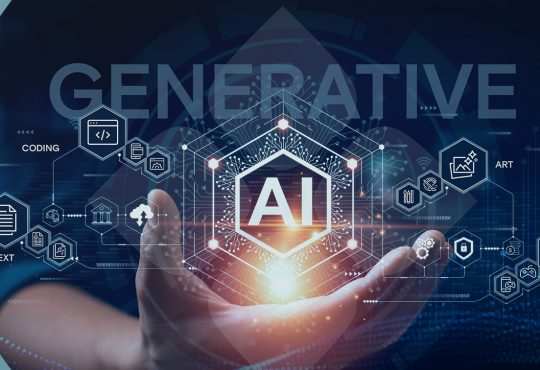
By Tripti Mehta
In today’s rapidly evolving world, digitization has become a driving force across various sectors, and the field of education is no exception. The integration of technology and education has brought forth a significant transformation, reshaping the way we learn and teach. From online learning to personalized education, the education sector has undergone a remarkable shift, creating a more dynamic and inclusive learning environment for students of all ages. In this article, we will delve into the ways digitization is enhancing the education sector, providing students and educators with innovative tools and approaches to make learning a more interactive and engaging experience.
- Online Learning: A World of Possibilities
One of the most profound impacts of digitization on education is the advent of online learning platforms. These platforms have revolutionized traditional classroom settings by offering a vast array of courses, lectures, and resources that can be accessed from anywhere with an internet connection. Students now have the flexibility to choose courses that align with their interests and learning pace, breaking down geographical barriers and expanding their horizons.
2. Personalized Education: Tailoring Learning Experiences
Digitization has paved the way for personalized education, where students can learn at their own pace and cater to their individual learning styles. Adaptive learning algorithms analyze a student’s progress and provide tailored content, ensuring that each student receives the support they need to succeed. This approach not only boosts engagement but also boosts confidence, as students are empowered to grasp concepts fully before moving forward.
3. Easy Access to Resources: A Wealth of Information
Gone are the days of heavy backpacks filled with textbooks. Digitization has made educational resources readily accessible with just a few clicks. Online libraries, databases, and open educational resources provide students with a wealth of information at their fingertips. This easy access to resources encourages self-directed learning, enabling students to explore topics beyond the curriculum and satisfy their curiosity.
4. Interactive Learning Experiences: Engaging and Immersive
Traditional lectures often struggle to maintain students’ attention. However, digitization has introduced multimedia content, simulations, and virtual reality into the classroom, making learning engaging and immersive. Complex concepts can be simplified through interactive visuals, and virtual field trips can transport students to historical sites, scientific laboratories, and even outer space, enhancing the understanding of real-world applications.
5. Data-Driven Insights: Nurturing Effective Teaching
The digitization of education doesn’t just benefit students; it also empowers educators. Data-driven insights obtained from digitized platforms provide teachers with a comprehensive understanding of students’ learning patterns, strengths, and areas that need improvement. This enables teachers to tailor their instruction to meet individual needs, fostering a more effective and targeted teaching approach.
6. Enhanced Learning Experience: Anytime, Anywhere
With digitization, the boundaries of time and space have been transcended. Students can access educational materials at any time and from any location, whether they’re at home, commuting, or even on vacation. This flexibility encourages continuous learning and accommodates diverse schedules, making education accessible to a broader demographic.
In conclusion, digitization has ushered in a new era of education, redefining the learning landscape and providing unprecedented opportunities for students and educators alike. From the convenience of online learning to the personalization of educational content, digitization has significantly enhanced the education sector. It has made education more interactive, engaging, and inclusive, enabling learners to reach their full potential with the support of technology.

(The author is Tripti Mehta, Edupreneur and Founder of Success Edusys, and the views expressed in this article are her own)






